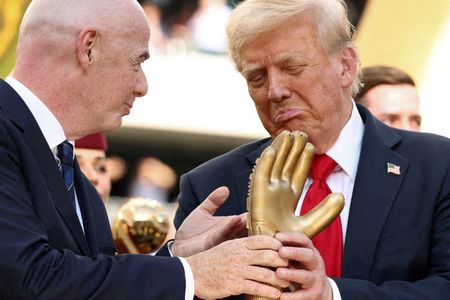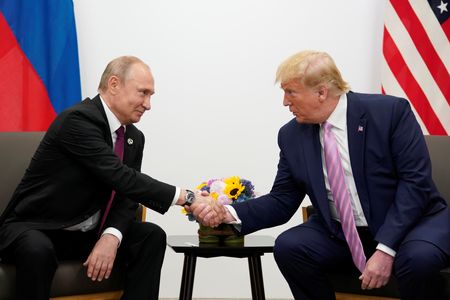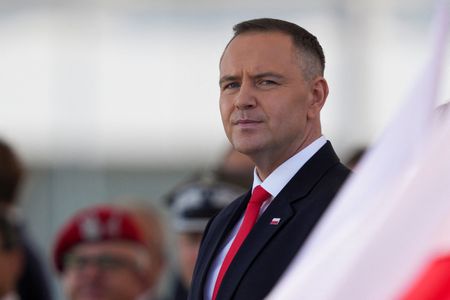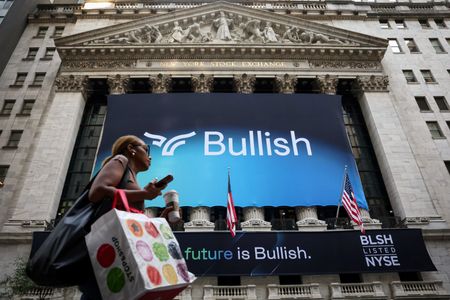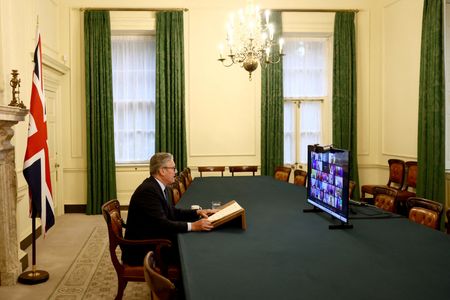By John Revill
ZURICH (Reuters) -The Swiss government would not object to tennis legend Roger Federer or FIFA President Gianni Infantino intervening to reduce the country’s tariff burden after the U.S. slapped a 39% import duty on its goods, President Karin Keller-Sutter said.
Some Swiss politicians have proposed their countryman Infantino as an informal negotiating channel with U.S. President Donald Trump after the U.S. leader attended the FIFA Club World Cup final in New Jersey in July.
Trump is also a fan of celebrities and could be swayed by an approach by Federer, Swiss media has reported.
“If personalities who know him have a conversation with him, we’re not against it,” Keller-Sutter told broadcaster Tele Zueri, when asked about Infantino or Federer speaking with Trump.
“That’s not a strategy we can officially pursue,” she said, adding negotiations with Washington would be led by the government. “I don’t know if that would actually help in the end.”
Switzerland has been left stunned by the 39% import levy – among the highest of any applied under Trump’s global trade reset, which went into effect last week.
Earlier in May, South African President Cyril Ramaphosa included popular golfers in his delegation that travelled to Washington hoping to discuss trade and reset strained relations with the U.S. During a tense White House meeting Trump confronted him with false claims of white genocide and land seizures.
Keller-Sutter said she hoped talks to cut U.S. tariffs on Swiss exports could be settled by October, but warned Switzerland would not pay “any price” after an earlier agreement was brushed aside by Trump in a phone call between the two leaders on July 31.
“The Federal Council is naturally striving to find a solution that will reduce customs tariffs,” Keller-Sutter said.
“I hope that is true,” she said when asked about U.S. Treasury Secretary Scott Bessent’s comments that trade issues could be resolved by October.
The tariff was unjustified and must be reduced, she said, noting that Swiss companies were investing heavily in the United States.
“It cannot be that, to put it simply, we just pay, worsen our business location and then still have high customs duties,” she said.
Still, Switzerland was a small country with no political power, which meant its leeway was limited, Keller-Sutter said.
(Reporting by John RevillEditing by Tomasz Janowski)

